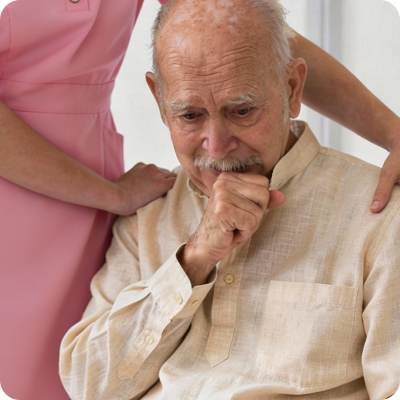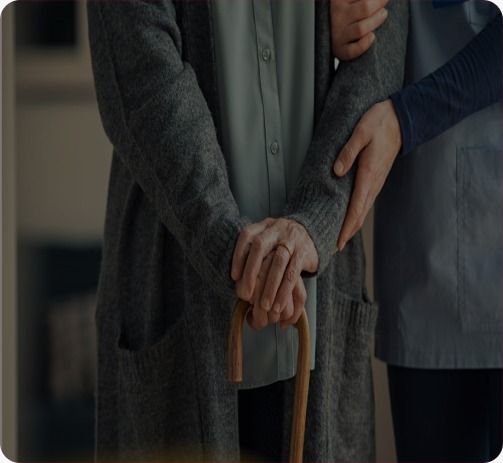At this given moment, about 11 million people are living with Parkinson’s disease, and these projections are estimated to double to nearly 20 million by 2050. The urgency for critical intervention has never been greater. These staggering figures demand not just rapid receptiveness but also deeper research, awareness, and compassionate care. Yet amid the growing discourse on Parkinson’s, one vital aspect remains untraversed completely: the role of gender in how the disease manifests and affects people. This blog takes a closer look at the biological and physical differences between men and women with Parkinson’s. It also explores the social, emotional, and psychological dimensions that shape each person’s experience with the disease.
Parkinson’s disease, however, is not just a statistical number; it is the reality for many. A father whose trembling hands can no longer hold his child, a woman whose pain is dismissed as stress, a caregiver silently losing herself with the burden of Parkinson’s care. Parkinson’s disease is not just a neurological condition; it’s a deeply personal and emotional journey, and that journey looks profoundly different depending on gender. It should be addressed as such.
What is Parkinson’s Disease?
Parkinson’s disease can be termed as a progressive neurological disorder that affects both motor and non-motor, emotional and behavioral symptoms. This disease starts with the degeneration of neurons that produce dopamine in parts of the brain involved in motor function. Dopamine is an important neurotransmitter in our body as it provides us with crucial motivation, motor function, and energy to live life.
Parkson’s is often perceived as a disease that causes issues with tremors, speed and control of movement, rigidity and balance issues; however, symptoms of Parkinson’s run deeper than that. Parkinson’s disease also severely affects a person’s mood, sleep, cognition, digestion and autonomic function. The order in which these symptoms manifest and their progressions differ in each gender and it is sometimes misdiagnosed due to these discrepancies.
Unfortunately, there is no cure for this disease, however, its progression can be slowed with the right personalised treatment. The need for Parkinson's disease care facilities is expected to grow with the growing number of people who develop it.
What is the Role of Gender in Parkinson’s Disease?
Most medical research till the late 90’s has primarily been done on middle-aged males, and thus many standard symptoms are derived from this research. This condition is heavily stereotyped, with a picture of an elderly man with a shaking hand being the standard representation. But this image oversimplifies a deeply complex condition. Parkinson’s affects men and women differently, in incidence, symptoms, response to treatment, emotional toll, and more. Recognizing these differences is crucial for effective, compassionate, and equitable Parkinson’s disease care.
What Role Does Estrogen Play in the Effects of Parkinson’s Disease?
Estrogen is known as a neuroprotective hormone and thus it is believed to protect women from neurological damage for most of their lives, however, as they reach menopause, the amount of estrogen in their bodies depletes significantly. Women post menopause are more susceptible to developing Parkinson’s disease. Because of this, women usually get Parkinson’s at later ages than men.
Progression & Pathophysiology of Parkinson’s Disease: What Biology Suggests
While the process of neurodegeneration affects all people with Parkinson’s, research shows that the disease progresses differently in men and women due to a complex intertwining of hormones, genetics, and brain structure.
Women often experience a slower progression of motor symptoms, possibly due to the neuroprotective effects of estrogen, which may delay the onset or reduce the severity of symptoms in premenopausal years. However, women also tend to face more severe non-motor symptoms such as depression, anxiety, fatigue, and pain. These factors are often under-recognized in clinical settings.
Men, on the other hand, are more likely to experience faster progression of motor decline, especially issues with balance, gait, and rigidity. This makes them more vulnerable to falling and slipping, and sets them up at a higher risk for cognitive impairment as the disease advances. Understanding these biological differences is key to offering gender-responsive care that not only manages symptoms but also addresses the unique needs of each individual.
How do Emotional & Social Dimensions Affect Genders Differently?
Society has long viewed gender through rigid roles, expecting men to be strong and stoic, and women to be selfless caregivers. But Parkinson’s doesn’t conform to these expectations. For men, admitting vulnerability can feel like surrendering their identity. The pressure to appear strong often forces them to hide symptoms, delaying diagnosis until the disease has already taken hold. It's not just their body that changes, it changes their sense of self.
Women, on the other hand, are expected to give care, not receive it. Their pain is often minimized, their fatigue dismissed. They're told to "tough it out," and many do; at great personal cost. When their symptoms are overlooked, their care is delayed, and their voices go unheard. In both cases, gendered expectations deepen the struggle, making Parkinson’s not just a medical challenge, but a personal and societal one.
Barriers, Delays, Bias in Diagnosis & Healthcare Access for Parkinson’s Disease
Despite significant advances in neuroscience and movement disorder care, many individuals living with Parkinson’s disease still face critical obstacles when it comes to timely diagnosis and equitable access to healthcare. Delays in diagnosis are especially common among women, whose symptoms are often misattributed to stress, anxiety, or hormonal changes, leading to years of under-treatment or misdiagnosis. Even once diagnosed, access to neurologists, movement disorder specialists, and advanced treatments like deep brain stimulation can vary drastically based on gender, geographic location, socioeconomic status, and race.
This systemic bias within the healthcare system not only leads to more aggressive and earlier intervention in men, it sidelines their female counterparts. This often leads to them juggling caregiving roles along with the disease, while their symptoms are misdiagnosed, neglected, or treated superficially. Addressing these disparities requires a conscious shift toward more inclusive research, gender-sensitive diagnostic tools, and a healthcare model that recognizes the full spectrum of patient experience.
How Can We Better Support Men and Women Living with Parkinson’s?
Supporting individuals with Parkinson’s disease means going beyond their medications and motor symptom management; it requires a holistic, gender-informed approach that honors their journey through every step. Women may struggle with underdiagnosis, greater anxiety or fatigue, and societal expectations that push them to minimize their pain. Men, on the other hand, may face emotional isolation, reluctance to seek support, or challenges with changing roles and identity due to their idea of strength and masculinity.
To truly support people living with Parkinson’s, we must listen more deeply, screen for both visible and invisible symptoms, provide mental health resources, involve professional caregivers in the care process, and ensure access to specialized care regardless of gender. Education, empathy, and equitable treatment must form the foundation of Parkinson’s care.
The Stigma of Parkinson's Disease Care Homes
India possesses a beautiful culture, where our parents are elevated to the status of gods, and rightly so. They are the most respected figures in most children’s lives. “Leaving them in a home” seems very off-putting to even consider due to the societal stigma that has been built brick by brick through verbal, media and other influences. However, there is a very important question to be asked here. Do the opinions of a society matter more than the care, comfort, and respect that your parents deserve? Oftentimes, seeking professional help can help greatly in bettering their condition, allowing them to live with joy and dignity. Most family members are not skilled caretakers and end up burning out or resenting them in the process. Loving them, spending time and sharing loving moments with them should be a priority.
How Epoch Elder Care Can Help Your Loved Ones Preserve Their Quality of Life?
In a world where medicine often treats the disease but forgets the person, let us be the generation that bridges that gap, with empathy, informed action, and dignity. Because every person living with Parkinson’s deserves not just to be treated, but to be understood, seen, and supported in a way that truly honors who they are.
Epoch Elder Care is a chain of premium elder care homes that provide thoughtfully designed spaces for your loved ones so that they can preserve their quality of life throughout their lives. We have premium homes for Parkinson's care in Gurgaon and Pune that can not only help preserve their motor abilities, but also help them sustain their sense of self and independence. You can peruse all our packages out here and book a consultation or visit with us to determine the best course of action in caring for your loved ones.













